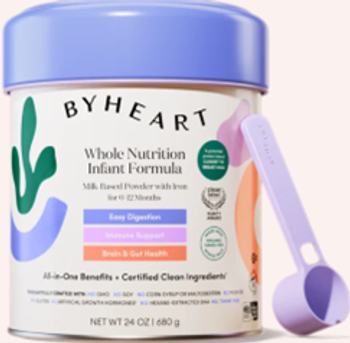
Is it cow's milk allergy or is it intolerance?
Distinguishing the difference between the 2 can be a challenge with cow’s milk and the interchangeable use for both terms can increase the challenge too.
Allergy and intolerance are 2 very different conditions, but for some allergens—like cow’s milk—these terms are sometimes used interchangeably.
The differences between these 2conditions is subtle, but since diagnosis of an immunoglobulin E (IgE)-mediated—or immune-based—allergy can be complex, these 2 diagnoses are often used interchangeably based on clinical symptoms alone.
Skin-prick or blood testing to look for IgE antibodies is the gold standard when it comes to diagnosing IgE-mediated allergies that typically involve the cow’s milk protein betalactoglobulin.1 Symptoms of this type of allergy often develop more quickly and severely, and can include anaphylaxis.
Non-IgE-mediated allergies and intolerance more typically induce a delayed reaction, or even arise later in childhood. Non-immune reactions to cow’s milk should also be ruled out to consider other problems like digestion, absorption, and metabolism issues. Lactase deficiency can also be a factor in these reactions, and although this condition can be uncomfortable, it’s usually benign.2
Jaclyn Bjelac, MD, a pediatric allergist and immunologist and associate director of the Food Allergy Center of Excellence at Cleveland Clinic Children's in Ohio says cow’s milk protein intolerance usually presents with isolated gastrointestinal symptoms in the newborn period or early infancy after exposure to a cow’s milk formula or through exposure to cow’s milk proteins in breast milk.
“These infants are typically fussy, colicky, and have mucousy stool with either visible or occult blood present on testing. Symptoms are rarely severe,” Bjelac explains. “Complete removal of cow’s milk from the infant’s diet with the use of hydrolyzed formula, or removal of cow’s milk from the mother’s diet should result in resolution of symptoms,” she says.
Bjelac says cow’s milk protein intolerance is a clinical diagnosis for which there is no confirmatory testing available.
“Affected patients can be slowly reintroduced to milk around 1 year of age when about 50% of patients will have outgrown this allergy, with nearly all children outgrowing it by 3 years of age,” she adds.
In more severe cases where an allergy to milk proteins is the cause of the reaction, food protein induced enterocolitis syndrome (FPIES) may develop. This is a less common presentation of an isolated gastrointestinal allergic reaction to cow’s milk, Bjelac explains.
“Intermittent exposures result in severe vomiting and occasionally diarrhea, and reactions may be severe enough to result in profound dehydration, lethargy, and acidosis,” she explains. “These patients may require intravenous fluid resuscitation to treat acute episodes. Chronic exposure, such as in the case of a newborn ingesting a cow’s milk formula, result in chronic vomiting, diarrhea, and failure to thrive.”
If FPIES is suspected, strict milk avoidance and a referral to a pediatric allergist is warranted, Bjelac says. Although there are no lab tests to confirm a specific FPIES diagnosis, blood testing may show neutrophilia with metabolic acidosis or even methemoglobinemia.
Another very rare progression of a reaction to cow’s milk is Heiner’s syndrome, says Bjelac. This can include symptoms like:
- Failure to thrive
- Vomiting
- Chronic lower respiratory symptoms
- Wheezing
- Presence of infiltrates on chest X-ray
- Anemia
Immune-mediated allergies to cow’s milk proteins can be confirmed with antibody testing, for other non-immune forms of cow’s milk allergies and intolerances, pediatricians must rely on clinical assessments to make a diagnosis. Although most cases of intolerance and non-IgE-mediated allergies are benign, children who continue to struggle with symptoms, or experience severe symptoms, should have other, more rare or severe conditions ruled out.
Reference
- Munblit D, Perkin MR, Palmer DJ, Allen KJ, Boyle RJ. Assessment of evidence about common infant symptoms and cow’s milk allergy. JAMA Pediatr. 2020;174(6):599–608. doi:10.1001/jamapediatrics.2020.0153
- Bahna SL. Cow's milk allergy versus cow milk intolerance.Ann Allergy Asthma Immunol. 2002 Dec;89(6 Suppl 1):56-60. doi: 10.1016/s1081-1206(10)62124-2.
Newsletter
Access practical, evidence-based guidance to support better care for our youngest patients. Join our email list for the latest clinical updates.





